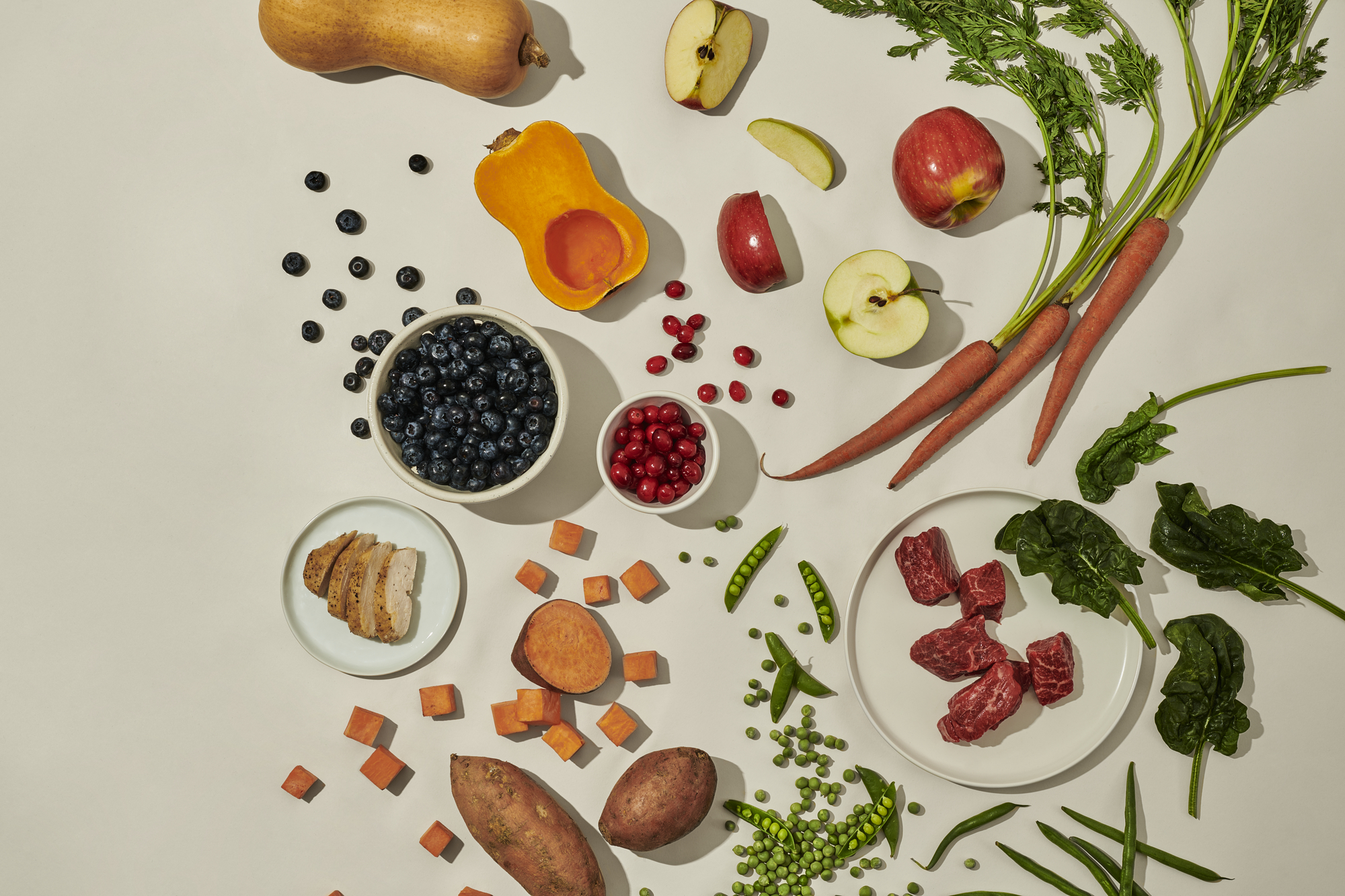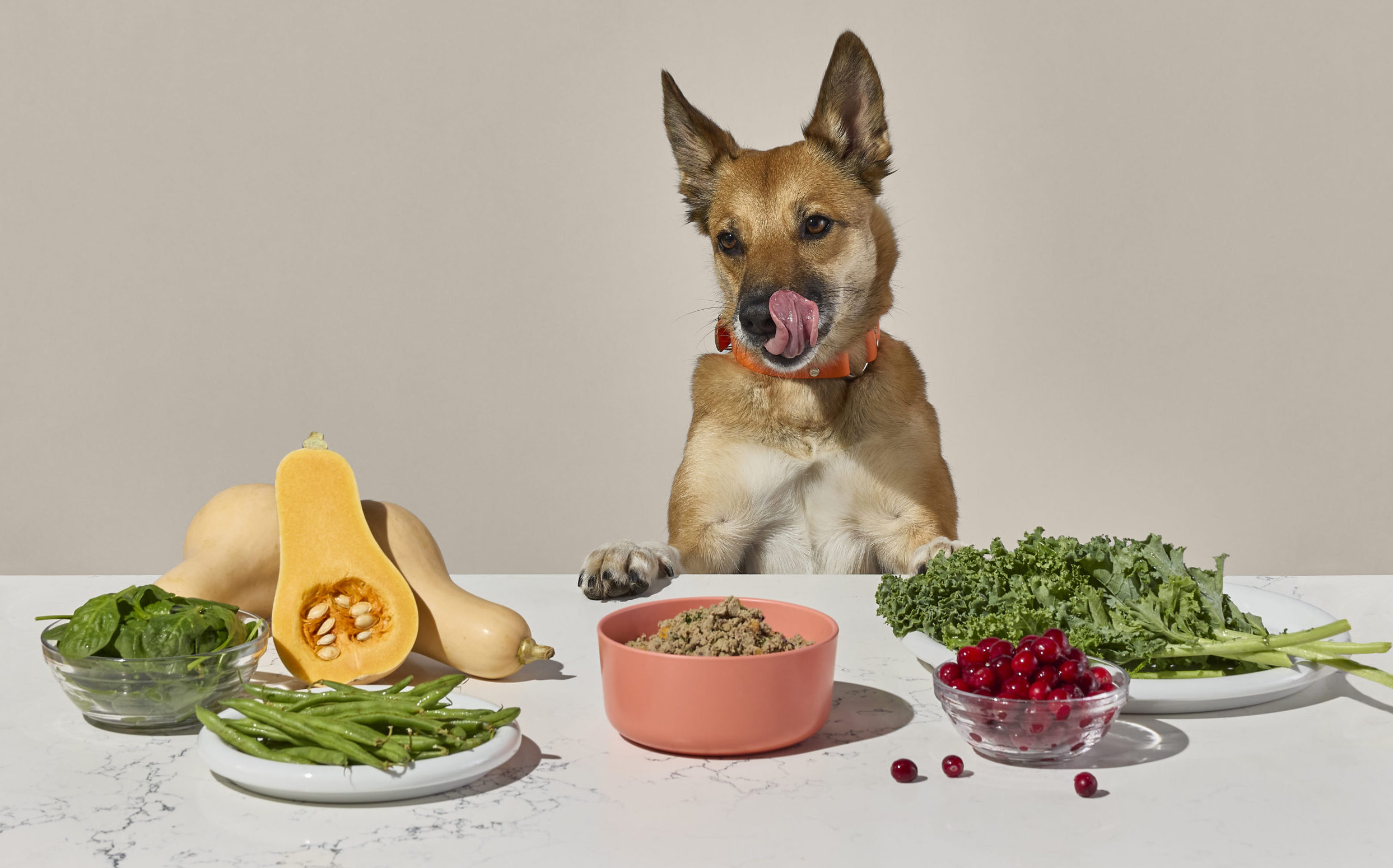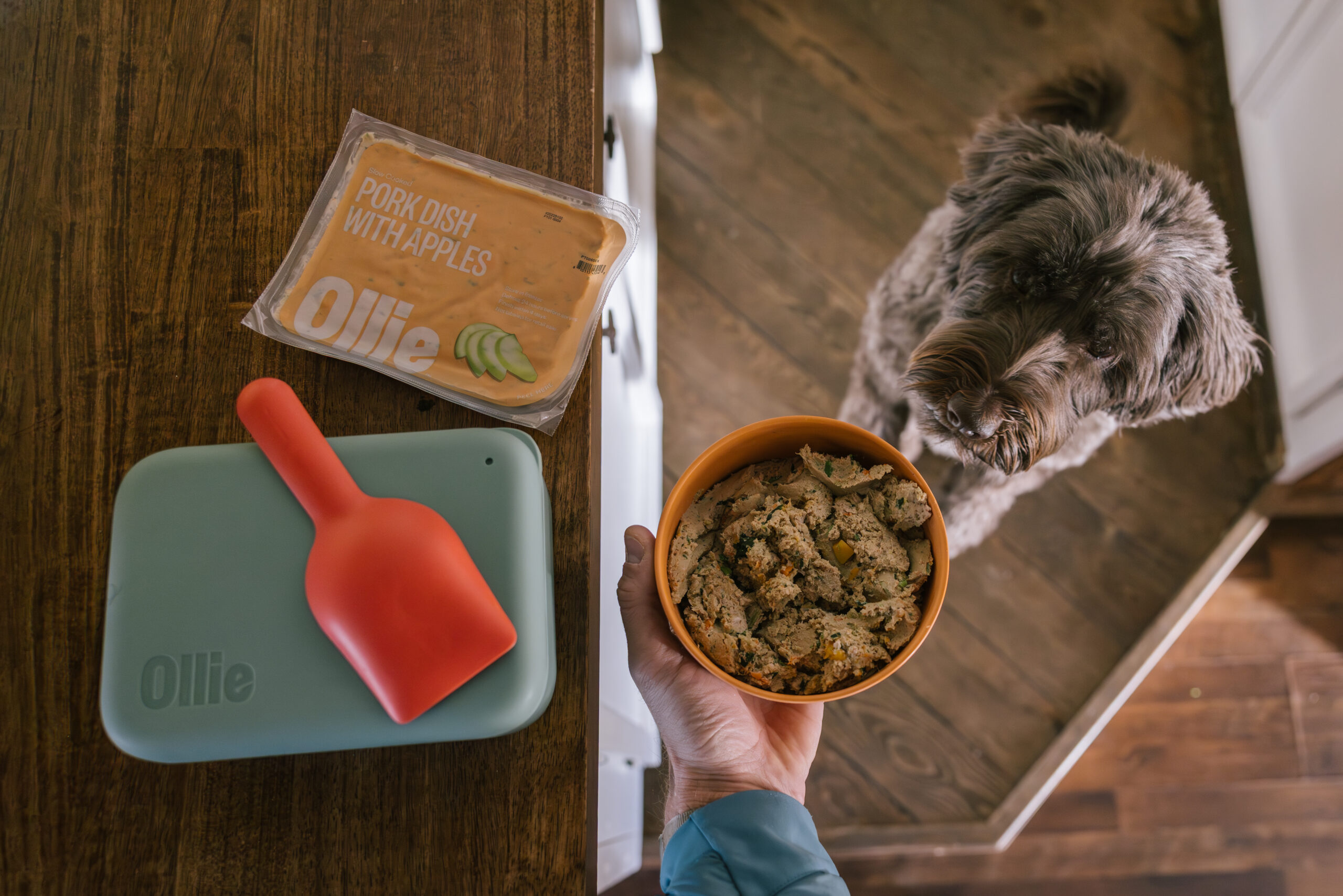Hey Ollie blog readers! We’re offering you an exclusive 60% OFF your starter box! Try now!
As a pup parent, you never want to see your dog in any sort of discomfort. When digestive issues like an upset stomach, gas, or loose stools become a regular occurrence, it’s often a sign that their food isn’t agreeing with them. Navigating the world of dog food can be overwhelming, but finding the right solution for a delicate digestive system can transform your pup’s health and happiness. This article will walk you through the signs of a sensitive stomach and help you find the best dog food to get your pup back on track.
Recognizing the Signs of a Sensitive Stomach
A sensitive stomach can manifest in several ways, and the signs can range from subtle to obvious. If you notice any of the following symptoms consistently, it might be time to reevaluate your dog’s diet:

- Diarrhea or loose stools: This is one of the most common indicators of digestive upset.
- Vomiting or regurgitation: Frequent vomiting after meals can signal an intolerance to an ingredient.
- Excessive gas: While all dogs have gas, a noticeable increase can point to digestive trouble.
- Changes in appetite: A sudden lack of interest in food or pickiness can be a symptom.
- A noisy, gurgling stomach: Loud gut sounds can indicate that digestion isn’t running smoothly.
It’s important to remember that these symptoms can also be related to other health issues. If your dog’s digestive problems are persistent or severe, always consult your veterinarian to rule out underlying medical conditions.
Key Ingredients for a Happy Gut
When searching for the best dog food for sensitive stomachs, the ingredient list is your best friend. The goal is to find a formula that is simple, gentle, and packed with nutrients that support digestive health.
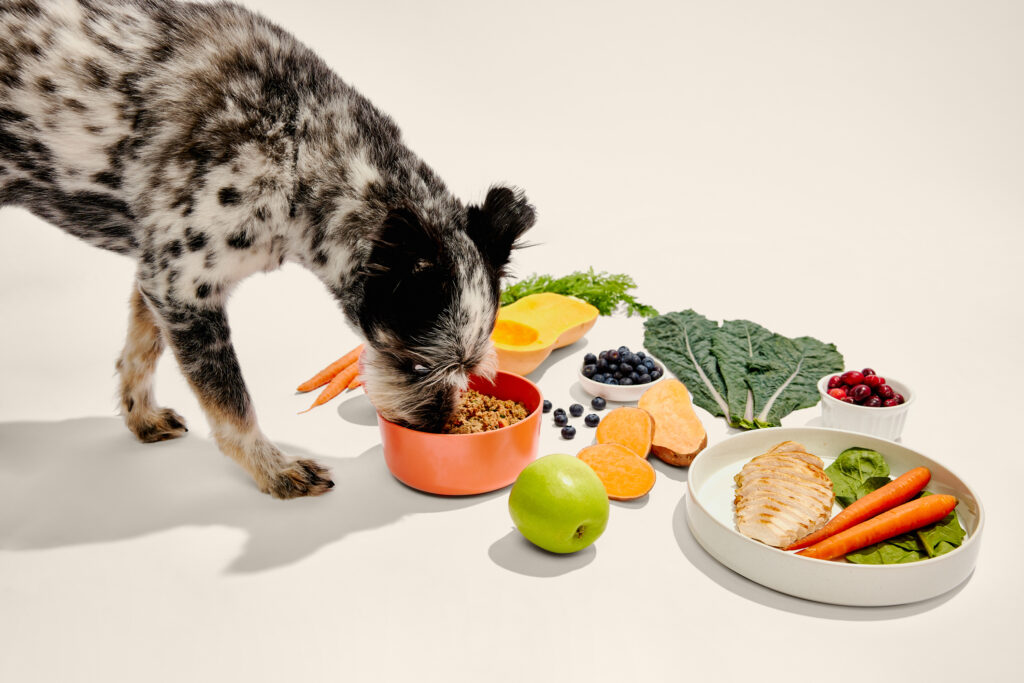
Easily Digestible Proteins
Protein is essential, but not all sources are created equal. For dogs with delicate systems, easily digestible proteins are crucial. Look for foods that feature a single, high-quality protein source, which minimizes the chances of triggering a sensitivity.
Great choices include:
- Chicken
- Turkey
- Lamb
- Fish (like salmon)
Gentle Carbohydrates and Fiber
Carbohydrates provide energy, and fiber is vital for maintaining regular, healthy stools. Opt for gentle, whole-food sources that are easy on the stomach. Pumpkin is a well-known ingredient for digestive health, as its soluble fiber can help with both diarrhea and constipation.
Look for ingredients like:
- Sweet potatoes
- Brown rice
- Oatmeal
- Pumpkin
- Quinoa
The Power of Probiotics and Prebiotics
A healthy gut is full of beneficial bacteria that aid digestion. Probiotics are live, “good” bacteria, while prebiotics are types of fiber that feed these bacteria. Together, they create a balanced gut microbiome, which is essential for any dog, especially one with a sensitive stomach. Many high-quality sensitive stomach formulas will include these beneficial additions.
Healthy Fats for Skin and Coat
Digestive issues can sometimes go hand-in-hand with skin problems. Omega-3 and Omega-6 fatty acids not only support a healthy coat and skin but also have anti-inflammatory properties that can help soothe an irritated digestive tract.
Ingredients to Avoid for Delicate Digestion
Just as important as what’s in the food is what’s not in it. Many common ingredients in commercial dog foods can be triggers for sensitive pups. Try to avoid foods that contain:
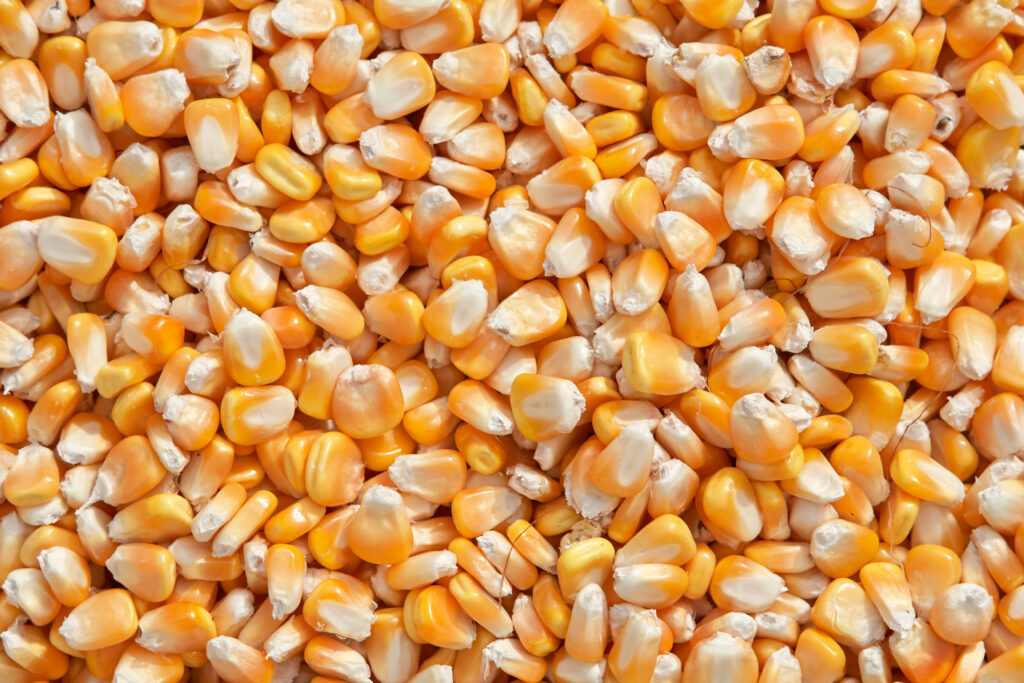
- Artificial additives: Colors, flavors, and preservatives can cause irritation.
- Fillers: Low-quality fillers like corn, wheat, and soy are common allergens and can be difficult for some dogs to digest.
- Meat by-products: These are less-defined protein sources that can vary in quality and digestibility.
- High fat content: Rich, fatty foods can be hard on the pancreas and the entire digestive system.
- Dairy: Many dogs are lactose intolerant, which can lead to significant digestive upset.
Exploring Different Types of Specialized Diets
Once you know what to look for, you can explore the different types of diets designed for digestive health.
Limited Ingredient Diets (LIDs)
The philosophy behind LIDs is simple: fewer ingredients mean fewer potential triggers. These diets typically feature one novel protein (like duck or venison) and one carbohydrate source, making it easier to identify and eliminate ingredients that cause problems.
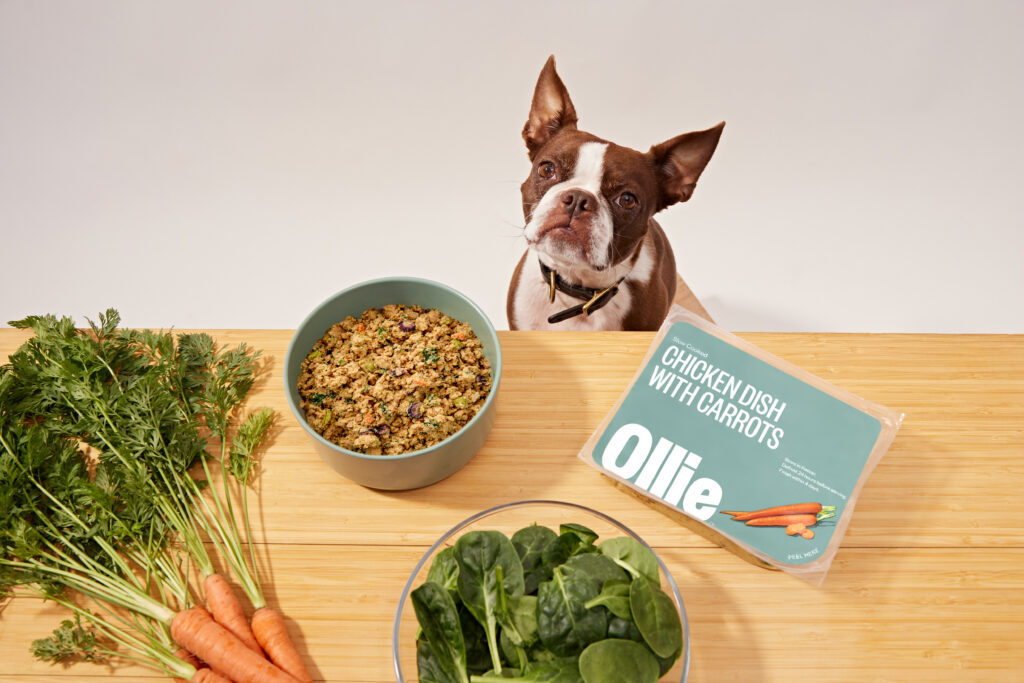
Fresh, Human-Grade Food
Fresh food diets have become a popular and effective solution for dogs with sensitive stomachs. Because they are made with human-grade meats and vegetables and are gently cooked, the nutrients are highly digestible and bioavailable.
Companies like Ollie offer vet-formulated recipes that are designed for pups with delicate digestion. The meals are built around single protein sources, feature gentle carbohydrates like sweet potatoes and pumpkin, and contain no fillers, corn, wheat, or soy. Because each meal plan is customized to your dog’s specific needs—factoring in age, breed, weight, and allergies—you can provide a diet that is tailored to support their digestive health.
Testimonial: “Winston struggled with loose stools and gas for years. We tried so many different kibbles. After switching to a fresh food plan, the change was incredible. Within a few weeks, his digestion was perfect, and he was so much more energetic. It’s been a total game-changer for him!” – Sarah P., Pet Parent
Prescription and Veterinary Diets
For dogs with severe or chronic gastrointestinal issues, a veterinarian may recommend a prescription diet. These can include hydrolyzed protein diets, where proteins are broken down into tiny pieces to avoid an immune response, or low-fat formulas for specific conditions.
Finding the Right Path Forward
By focusing on high-quality, digestible ingredients and avoiding common irritants, you can find a food that helps your dog thrive and puts an end to their digestive troubles. A happy gut leads to a happy pup, and the peace of mind that comes with it is priceless.
Ready to start fresh? Get food that passes the gut check with Ollie.
Frequently Asked Questions (FAQs)
What is the best dog food for a sensitive stomach?
There isn’t one single “best” food for every dog, as sensitivities vary. However, the most effective options are typically limited ingredient diets, fresh food made with human-grade ingredients, or formulas that feature a single, easily digestible protein (like chicken or lamb), gentle fibers like pumpkin, and added probiotics.
How quickly will I see an improvement after changing my dog’s food?
It can take time for your dog’s digestive system to fully adapt to a new diet. While some improvements may be seen in a few days, it can often take 2–4 weeks to see the full benefits. Remember to transition to the new food gradually to avoid further upset.
Is grain-free always better for a sensitive stomach?
Not necessarily. True grain allergies are less common than sensitivities to specific proteins. Many dogs with sensitive stomachs do very well on diets that include gentle, whole grains like brown rice or oatmeal. The key is finding high-quality, digestible ingredients rather than eliminating grains entirely unless a specific allergy is confirmed.
Can I just feed my dog chicken and rice forever?
A temporary bland diet of boiled chicken and rice can help calm an upset stomach, but it is not a complete and balanced diet for long-term feeding. It lacks essential vitamins and minerals your dog needs to thrive. For ongoing digestive health, it’s best to choose a commercially prepared food that is formulated to be complete and balanced.
Tagged As:

The nutrition your dog needs,
the food they want.

Enjoying our articles? Subscribe our Newsletters and get new articles directly to your inbox
You might also like
18 July 2025
4 MINS READ
New Puppy Diet Recommendations for Healthy, Happy Growth
As a new pup parent, one of the biggest ways you can support your puppy’s long-term health is by providing the right nutrition. A puppy’s dietary needs are different from an adult dog’s, and…
by Ollie Pets
18 July 2025
5 MINS READ
How Human-Grade Dog Food Benefits Your Pup’s Health and Happiness
You’ve likely heard the term “human-grade” dog food, but what does it really mean, and is it worth it? Choosing human-grade food can be a significant investment for your dog’s long-term he…
by Ollie Pets
18 July 2025
7 MINS READ
Choosing the Right Specialized Dog Food for Your Pup’s Health
While standard dog food works for many pups, some have specific health needs that require a more tailored approach. If your dog is dealing with a sensitive stomach, allergies, or a chronic conditi…
by Ollie Pets
